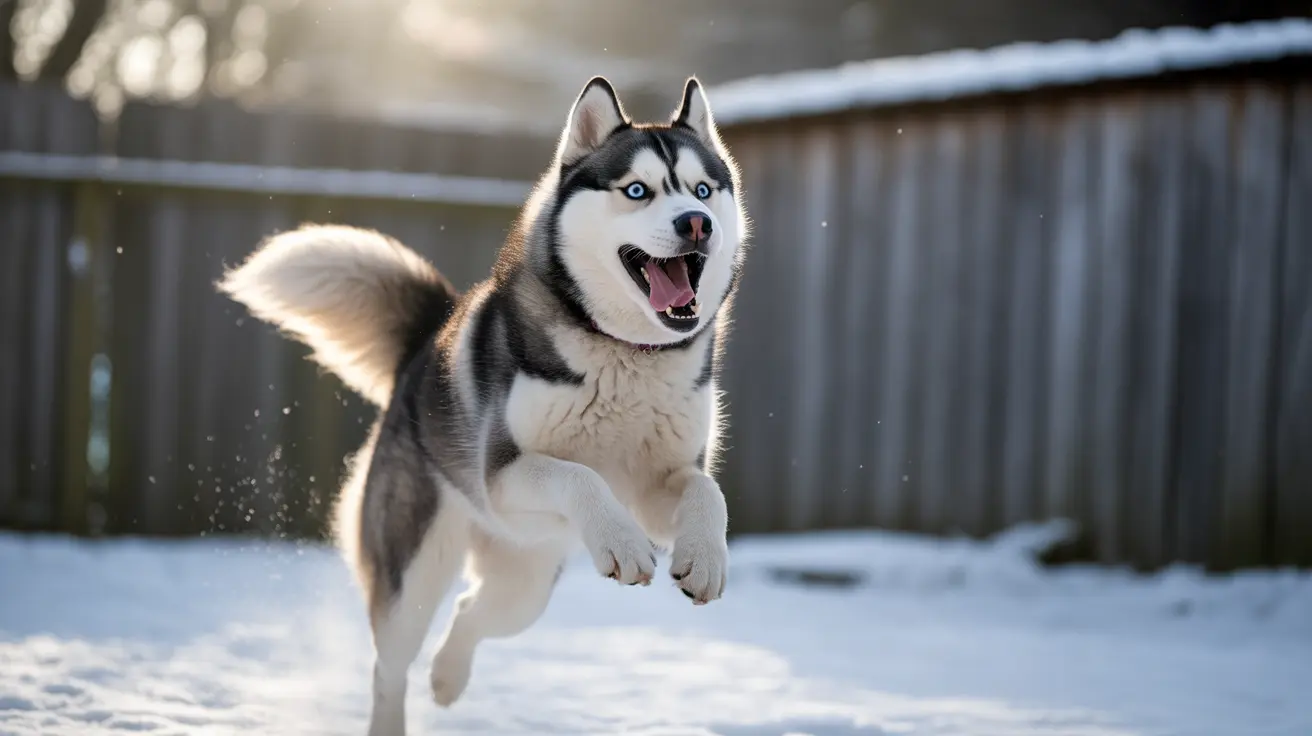The Science Behind Husky Screaming
Huskies possess a unique vocal apparatus that allows them to produce a wide range of sounds, including their characteristic scream. This vocalization ability evolved from their working heritage, where clear communication between sled dogs was essential for survival and coordination.
Unlike other breeds that primarily bark, Huskies utilize a complex vocal repertoire that includes howls, talks, and screams. Their close genetic relationship to wolves contributes to this enhanced vocal capacity, making them one of the most communicative dog breeds.
Common Reasons for Husky Screaming
Emotional Expression
Huskies often scream to express various emotional states:
- Excitement during playtime or when greeting family members
- Frustration when denied something they want
- Anxiety or stress in unfamiliar situations
- Joy during activities they enjoy
Communication and Attention-Seeking
These intelligent dogs quickly learn that screaming effectively captures human attention. Whether they're hungry, want to play, or simply crave interaction, they may use their vocal abilities to communicate their needs.
Managing Husky Screaming Behavior
Training and Positive Reinforcement
While you can't completely eliminate a Husky's vocal nature, you can manage it through consistent training:
- Reward quiet behavior
- Establish clear command structures
- Ignore attention-seeking screams
- Provide adequate physical and mental stimulation
Environmental Management
Creating an environment that reduces triggers for screaming is essential:
- Maintain regular exercise routines
- Provide engaging toys and activities
- Establish consistent daily schedules
- Ensure sufficient social interaction
Frequently Asked Questions
Why do huskies scream and what emotions are they trying to express?
Huskies scream to express various emotions including excitement, anxiety, frustration, and joy. This behavior is part of their complex communication system inherited from their sled dog ancestry and serves as their way of conveying needs or feelings to their human family.
How can I tell if my husky's screaming is due to anxiety or excitement?
Anxiety-related screaming is often accompanied by other stress signals like pacing, excessive panting, or tucked tail. Excitement screaming typically occurs with positive body language such as a wagging tail, playful bouncing, and alert, forward-facing ears.
What are effective ways to train a husky to reduce unwanted screaming?
Consistent positive reinforcement training, rewarding quiet behavior, providing adequate exercise, and maintaining regular routines can help reduce excessive screaming. Never punish vocalization, as this may increase anxiety and worsen the behavior.
How is a husky's scream different from their howl or other vocalizations?
A Husky's scream is typically higher-pitched and more intense than their howl. While howls are melodic and sustained, screams are sharp, piercing vocalizations that often sound remarkably human-like.
Can husky screaming be managed without using bark collars or punishment?
Yes, husky screaming can be effectively managed through positive reinforcement training, proper exercise, mental stimulation, and addressing the underlying cause of the vocalization. Bark collars and punishment methods are discouraged as they can increase anxiety and create additional behavioral issues.
Conclusion
Husky screaming, while sometimes challenging for owners, is a natural and important aspect of the breed's communication style. Understanding the reasons behind this behavior and implementing appropriate training and management strategies can help create a balanced relationship with these vocal and charismatic dogs.
Remember that this unique vocalization is part of what makes Huskies special, and with patience and consistent training, you can work with your dog to find an acceptable balance between expression and quiet time.






